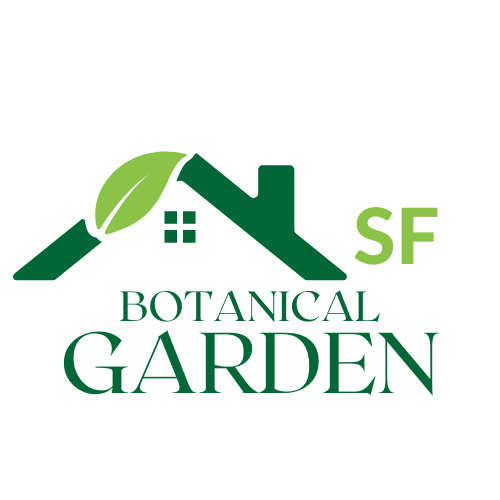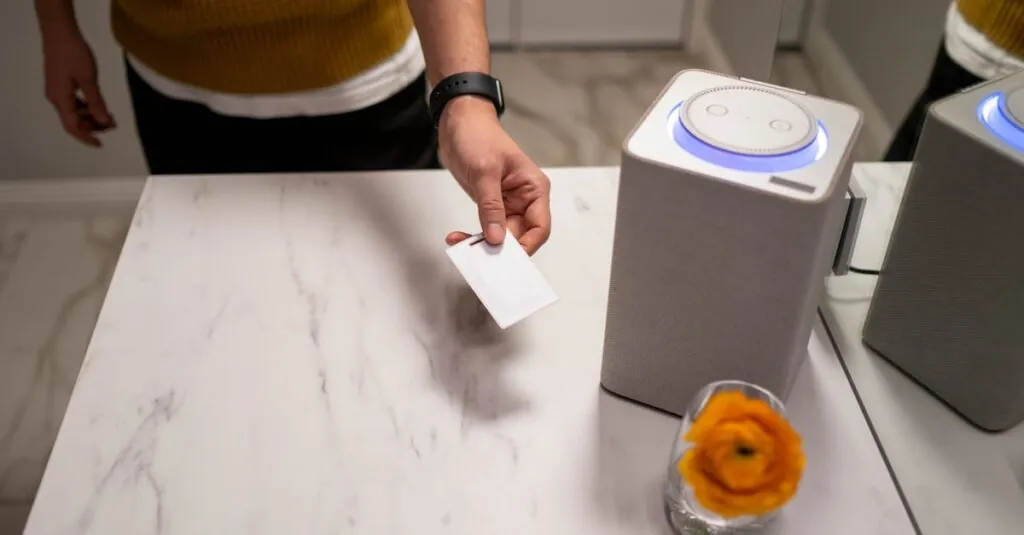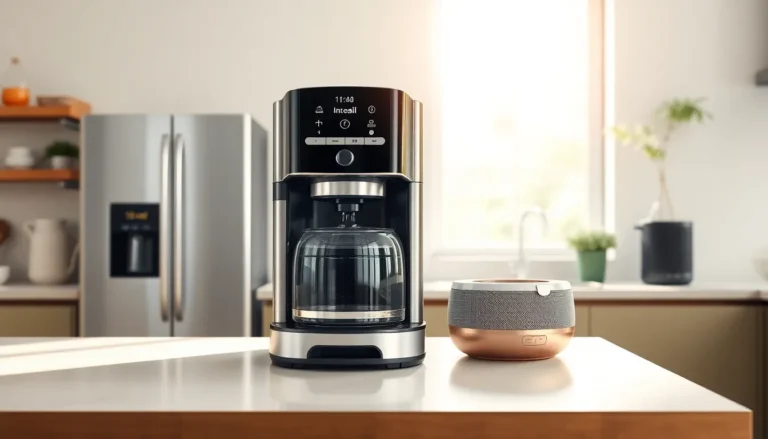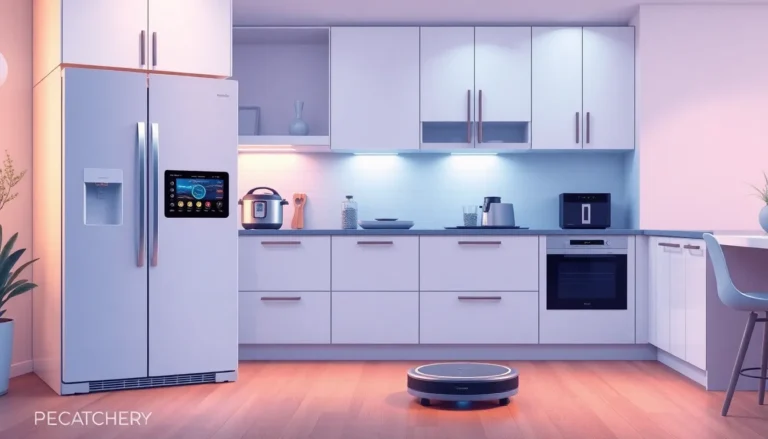Table of Contents
ToggleIn a world where even your coffee maker can be smarter than your ex, it’s time to let your garden join the tech revolution. Smart irrigation controllers are here to save the day—and your water bill. These nifty gadgets take the guesswork out of watering, ensuring your plants get just the right amount of hydration without drowning them in a deluge.
Imagine a system that knows when it’s raining and adjusts your watering schedule accordingly. No more overwatering or underwatering; just healthy, happy plants thriving in their own little paradise. With smart irrigation controllers, you can sip your iced tea while your garden gets the royal treatment it deserves. Say goodbye to the days of dragging hoses and hello to a greener, more efficient future.
Overview of Smart Irrigation Controllers
Smart irrigation controllers enhance garden watering efficiency by using automated systems. These devices utilize real-time weather data to modify watering schedules based on current environmental conditions. Many models include soil moisture sensors, ensuring plants receive adequate hydration without overwatering.
Convenience plays a vital role in their design. Gardeners program smart controllers through mobile apps, accessing and adjusting settings from anywhere. Installation typically requires minimal effort, allowing users to implement the system quickly.
Cost savings are significant. Studies reveal smart irrigation controllers can reduce water usage by up to 30%. Consequently, these savings reflect not only on water bills but also on the overall environmental impact.
Technology advancements have improved these systems. Features include integration with smart home devices, voice control compatibility, and centralized monitoring. As these controllers evolve, they become increasingly user-friendly and efficient.
Programming options are flexible, catering to various plant requirements. Gardeners can adjust schedules based on plant type, ensuring optimal growth. Seasonal adjustments remain straightforward, keeping gardens healthy year-round.
Overall, smart irrigation controllers present an effective solution for modern gardening. The combination of technology, convenience, and efficiency positions these devices as essential tools for sustainable landscaping.
Benefits of Smart Irrigation Controllers
Smart irrigation controllers offer several advantages that significantly improve watering practices in gardens. They incorporate advanced technologies to provide precise watering tailored to specific plant needs.
Water Conservation
Water conservation stands as a primary benefit of smart irrigation controllers. These devices automatically adjust watering schedules based on real-time weather data and soil moisture levels. By preventing overwatering, they use up to 30% less water compared to traditional systems. Adjustments made by smart controllers respond to rainfall, reducing the need for supplementary water. Consequently, gardens also contribute to water preservation efforts and alleviate strain on local water supplies.
Cost Savings
Cost savings represent another major advantage of adopting smart irrigation technology. Reduced water usage directly translates to lower water bills, helping homeowners save significant amounts annually. Studies confirm that smart systems can cut water expenses by as much as 30%. Additionally, minimizing overwatering decreases the need for lawn repair and plant replacement costs. These financial benefits make smart irrigation controllers an economically wise choice for environmentally conscious gardeners.
Enhanced Plant Health
Enhanced plant health results from the precise scheduling and soil monitoring capabilities of smart irrigation controllers. They ensure plants receive the right amount of water at the optimal times, promoting stronger growth and vibrant gardens. Automated systems accommodate varying plant requirements, adjusting moisture levels based on seasonal changes. A healthier garden generates lush foliage and robust flowers, enhancing overall aesthetic appeal. By prioritizing the specific hydration needs of plants, smart controllers contribute to flourishing landscapes.
Types of Smart Irrigation Controllers
Smart irrigation controllers come in various types, each offering unique features tailored for effective watering management. Understanding these options helps gardeners choose the right system for their gardens.
Weather-Based Controllers
Weather-based controllers utilize real-time weather data to adjust irrigation schedules. Sensors monitor local precipitation, temperature, and humidity, ensuring gardens receive appropriate watering. When rainfall occurs, these systems automatically reduce or skip watering sessions, preventing water waste. Many of these controllers connect to local weather stations or online weather services, providing precise data. The ability to adapt to changing conditions promotes plant health and conserves water, making them a top choice for water-conscious gardeners.
Sensor-Based Controllers
Sensor-based controllers employ soil moisture sensors to determine when watering is necessary. These devices monitor moisture levels directly in the soil, adjusting irrigation accordingly. By identifying dry conditions, they activate the irrigation system, ensuring plants receive the ideal amount of water. Soil temperature sensors may also feature in some models, enhancing irrigation decisions based on temperature fluctuations. The data-driven approach helps maintain optimal soil conditions, minimizing overwatering and promoting healthier root systems. Sensor-based controllers appeal to users seeking tailored watering solutions for various plant species.
Features to Look for in Smart Irrigation Controllers
Smart irrigation controllers come equipped with essential features that enhance garden management. Evaluating these features ensures optimal performance and efficiency.
User Interface
User interfaces should be intuitive, allowing easy navigation across features. Online platforms often provide mobile app integration for access to monitoring and scheduling functionalities. Visibility matters, so clear displays showing real-time data and program settings improve usability. Responsiveness in the design ensures seamless interaction for quick adjustments. A user-friendly interface helps gardeners control their watering schedules without hassle.
Remote Access Capabilities
Remote access capabilities empower users to manage watering schedules from anywhere. Mobile apps facilitate changes to settings without needing to be onsite. Notifications sent via smartphones keep users informed about watering activities, adjustments, or potential issues. Many systems offer cloud connectivity, enabling updates and syncing with weather data. Such features provide peace of mind, as gardeners retain control over their irrigation even when away from home.
Customization Options
Customization options allow gardeners to tailor irrigation schedules according to specific plant needs. Flexible programming caters to different plant species, seasonal changes, and varying climate conditions. Scheduling preferences frequently include multiple zones, enabling targeted watering for distinct areas based on plant types. Some systems support weather adjustments, altering schedules according to precipitation forecasts. Tailored solutions optimize plant health while conserving water usage effectively.
Smart irrigation controllers represent a significant advancement in sustainable gardening practices. By harnessing technology to automate watering schedules based on real-time data, these devices not only enhance plant health but also promote water conservation. Gardeners can enjoy the convenience of remote management while ensuring their landscapes thrive.
With features like weather-based adjustments and soil moisture sensors, smart controllers adapt to individual plant needs, making them indispensable for efficient irrigation. As the demand for eco-friendly solutions grows, investing in smart irrigation systems is a proactive step towards a healthier garden and a more sustainable future.







